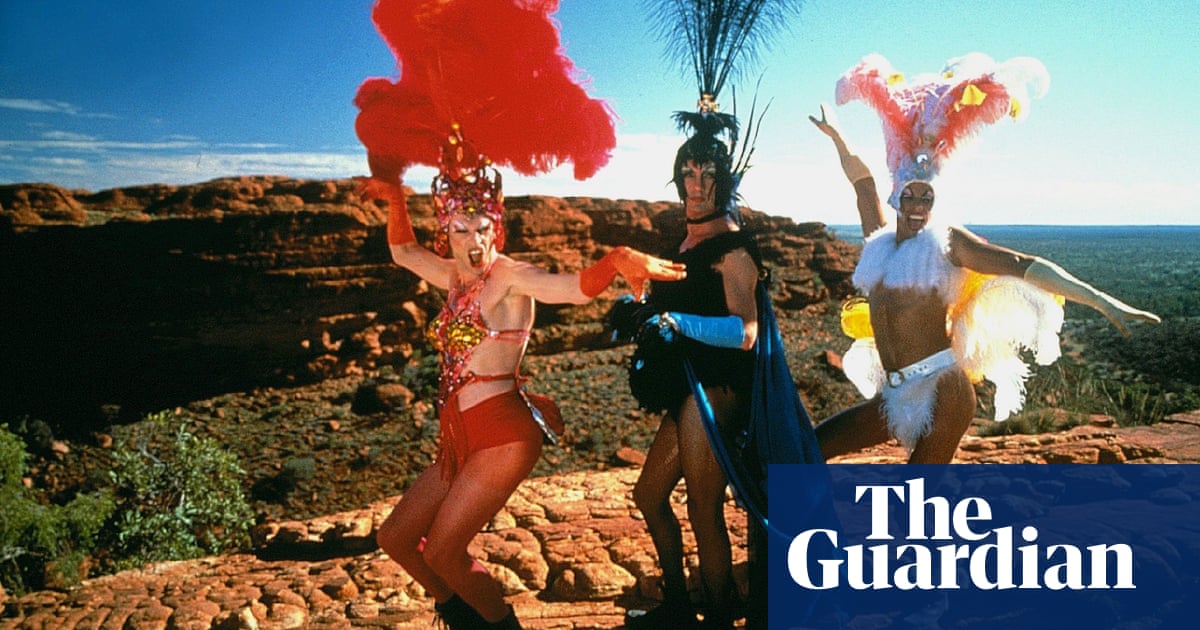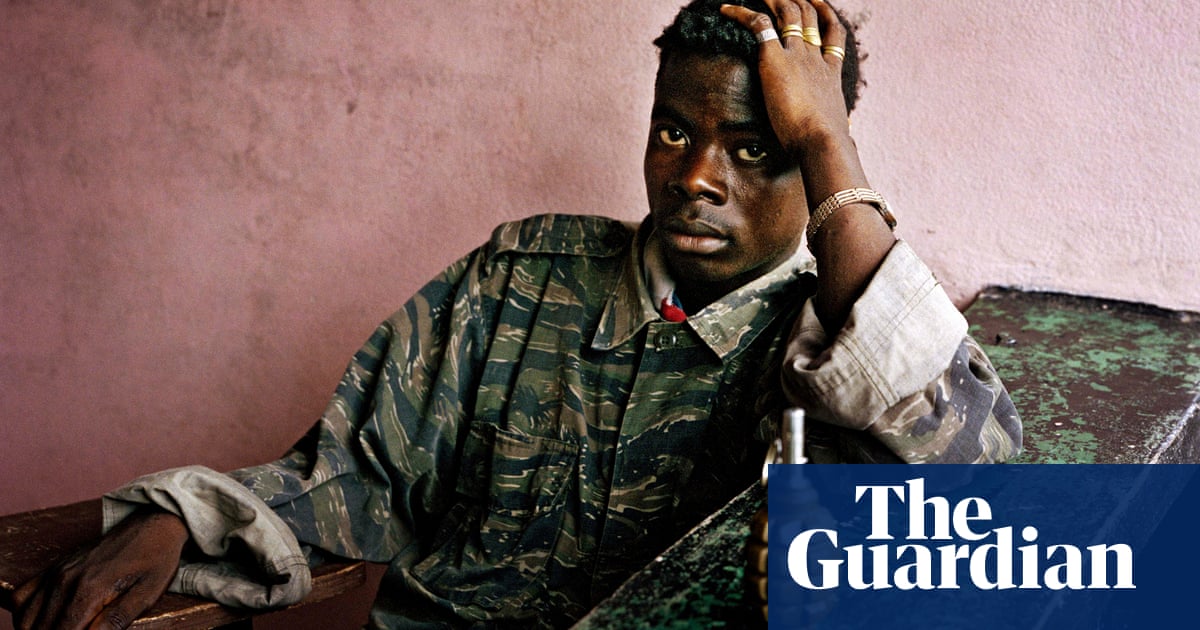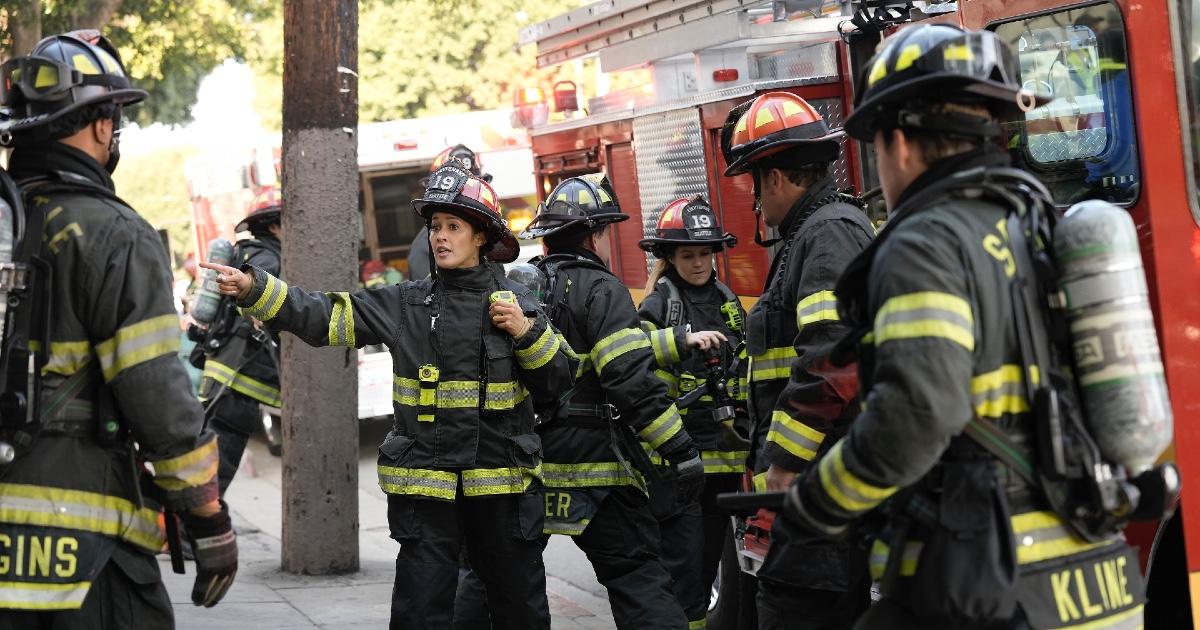
‘Kindred’ Review: FX/Hulu’s Octavia Butler Adaptation Takes Risks That Don’t Pay Off — Yet
Logo textAs the recent kerfuffle involving a producer of Apple TV+’s Emancipation bringing an 1863 photograph of a horrifyingly abused slave to a red-carpet premiere reminded us, trauma is not a thing to be treated glibly, regardless of intent.
Using unfathomable horrors from the real world as a grounded backdrop for occasionally fantastical genre pieces is a well-established minefield. Remember a few years ago when a pair of alternate histories based on the Civil War were announced and then disappeared, one amid immediate criticism (HBO’s Confederate) and the other amid general curiosity (Amazon’s Black America, from Aaron McGruder)? Yet we’ve still seen the Holocaust play a key role in series built around time travel (Russian Doll), vampires (The Strain), serial killers (The Patient) and action-driven revenge (Hunters), while more viewers likely learned about the Tulsa Massacre through superhero (Watchmen) and horror (Lovecraft Country) shows than ever read about it in school. Heck, The Underground Railroad is science fiction in its own odd way.
Related Stories
Kindred
The Bottom LineOften effective, but key choices aren't clicking.Airdate: Tuesday, December 13 (Hulu)
Cast: Mallori Johnson, Micah Stock, Ryan Kwanten, Gayle Rankin, Austin Smith, David Alexander Kaplan, Sophina Brown, Sheria Irving
Creator: Branden Jacobs-Jenkins, from the novel by Octavia Butler
Trepidation might explain why boundary-breaking scribe Octavia Butler’s Kindred, despite its iconic literary status, has never been adapted to the screen until this upcoming FX-produced Hulu series. Kindred is a time-travel novel and a slavery novel, and the possibility of blending those elements in a way that yields the opposite of alchemy is high.
Credit playwright and first-time series creator Branden Jacobs-Jenkins with bringing Kindred to television in a way that feels recognizable from Butler’s novel and avoids any fundamentally uncomfortable missteps. But maybe the resulting series is almost too comfortable. In deciding to adapt Kindred, hardly the longest or most narratively complex of novels, as an ongoing drama rather than a limited series, Jacobs-Jenkins has made choices that prioritize elongation and expansion over Butler’s immediacy and focus. By season two or three, I can easily imagine many of those choices paying pidends and, in fact, I can’t imagine the show making it to a second or third season without them. In the short term, though, expanding the world at the fringes of Kindred drains what should be the show’s center of a lot of its potency, despite an excellent lead performance from television newcomer Mallori Johnson.
Johnson plays Dana, an East Coast transplant who arrives in Los Angeles in 2016 with dreams of writing for TV. At a tense dinner with her local family, Dana meets waiter Kevin (Micah Stock) and they begin a flirtation that soon becomes intimate, which proves handy because Dana is going through some stuff. See, at apparently inexplicable moments, Dana is disappearing and emerging on a Maryland tobacco plantation in the early 1800s. Dana’s arrivals seem to coincide with moments of jeopardy for young Rufus Weylin (David Alexander Kaplan), son of boozy estate owner Thomas (Ryan Kwanten) and pathologically insecure Margaret (Gayle Rankin).
This is convenient for Rufus, who has a tendency toward near-drowning, near-burning and other near-death escapades, but it’s vastly less convenient for Dana, a young Black woman whose first moment of real independence keeps being marred by unplanned jaunts to a time and place where everybody assumes she’s property. Is Dana’s traveling entirely about saving Rufus’ life over and over again, or does it relate to the maintenance of distant branches in her family tree — the title indicates a big ol’ “Yes!” on that one.
Butler’s book is told completely through Dana’s perspective. We only know what she knows and understand what she understands, and the horrifying and confusing rush of time travel keeps her too consumed to try to fathom what is happening. Though she — with the help of Kevin, her husband in the novel — is able to figure out certain patterns, including that her trips to the past are becoming more frequent and lasting longer, her general interest is only sporadically in the mechanics of the thing that’s happening to her. Instead, the book is built on almost a psychological experiment, as Dana goes from play-acting the version of herself who might have existed 150 years earlier to realizing, with horror and sad recognition, the speed with which enslavement takes root in her otherwise modern psyche.
I don’t think Jacobs-Jenkins is wrong to recognize that both the mechanics of Dana’s time travel and her life in the present day had to be more substantively developed for Kindred to function as an ongoing series.
In the book, for example, the present day of 1976 exists thematically for bicentennial parallels — the gap between the 200-year-old aspirations of the country and its nascent realities are hard to miss — and practically as a place for Dana to take baths and do basic research. In the series, Dana has an aunt and uncle who can tell her family lore, which involves a missing mother and connections to Olivia (Sheria Irving), whom she meets in the past.
Dana also has nosy white neighbors (Brooke Bloom and Louis Cancelmi) whose distrust — somewhat well-earned, since Dana’s comings and goings often include screaming and unexplainable wounds — makes them Karens several years before the term existed. As palpable as the threats are for Dana in the past, there’s no moment in the series more chilling than the nighttime arrival of the LAPD at her house — which is even more menacing if you recall the connection between modern policing and slavery-era patrolling.
It’s possible to get really invested in what’s happening in the present in the series — which was not the case in the book — but in only an eight-episode first season that investment comes at a cost. The slavery side of the story becomes interesting more in generating suspense as to what it will take to get Dana back than as a world of its own. Instead of building relationships and roots on the Maryland plantation, Dana is poking around like it’s a mystery. Olivia, not much of a character, absorbs time. Kevin gets his own storylines, answering questions that I definitely never really had in the book. In the process, the day-to-day nightmare of Dana’s new reality gets lost, even if the more insinuating discomfort of her present-day reality has been enhanced. This whiplash disorientation plays strongly in the pilot, directed with jarring verve by Janicza Bravo, but fizzles in later episodes.
I can accept that the Weylin farm is intended to seem underpopulated and a little drab, but the few slaves we meet — Austin Smith’s Luke, Sophina Brown’s Sarah, Christopher Farrar’s Nigel, Lindsey Blackwell’s Carrie — fail to materialize as characters. Their relationships with Dana never make sense because it’s almost impossible to fathom how anybody at the plantation is viewing Dana, or how she’s viewing her own predicament, without any interiority or voiceover to match the book’s internal monologue. It’s six or seven episodes in before Dana broaches the idea that she’s becoming inured to her circumstances in the past — a contention that doesn’t really make sense since there’s been so much back-and-forth with the present.
Johnson has to carry a lot of the stakes on her shoulders. We see just enough of the light-hearted young woman watching episodes of Dynasty to learn television structure — a character detail that, thus far, has paid no pidends — that there’s effective pathos in watching first the joy, and then even the spirited curiosity, drain. She’s modern in affect, but not too modern, and I think that lets the series accept she could fit in on the plantation in ways the scripts don’t really otherwise justify.
I wish Johnson had a better partner in Stock. The actor absolutely conveys Kevin’s awkward perplexity regarding the evolution of what starts as a one-night stand, but there’s something unformed or undirected about his performance that keeps him from feeling like more than an interloper in a story that isn’t supposed to be his. Kwanten and Rankin both inject nearly enough human frailty into otherwise repugnant characters, without making them actually compelling. Smith has one great and impassioned scene in the sixth episode that he plays so well that I briefly forgot that Luke had been given neither personality nor backstory previously.
Though Kindred has this big loss at the center of the story, I can see easily how the concentration on time-travel mechanics, how giving Kevin his own delineated character journey, how raising the stakes in the present day might eventually pay off. The show isn’t there yet. So far, those choices have the effect of upstaging the sequences set in the past — something not helped by the series’ restrained handling of the atrocities of slavery. The decision to shy away from fetishized violence will help viewers with no interest in another stylized depiction of trauma and it probably makes the parallels between 1800s and 2016 more unsettling and relatable, but it lowers the overall stakes in ways that are confusing and a little disappointing.





























































